Ahhh, soda. Soft drinks are one of the most popular drinks throughout the United States – no surprise there! [1] Soft drinks, like soda, are the third most popular drink option in America… only third to coffee and water. It’s even MORE popular than alcoholic drinks like beer and wine! [2] But it can come with a long list of nasty health issues if consumed regularly. Let’s dive into the healthier alternatives to soda!
Do you have a hankering for a fizzy, sugary soda? Are there soda alternatives that are better for you, yet cure your craving? What are the best healthy drinks besides water? Is diet soda healthier?
This article dives into it all! Keep reading to learn more.
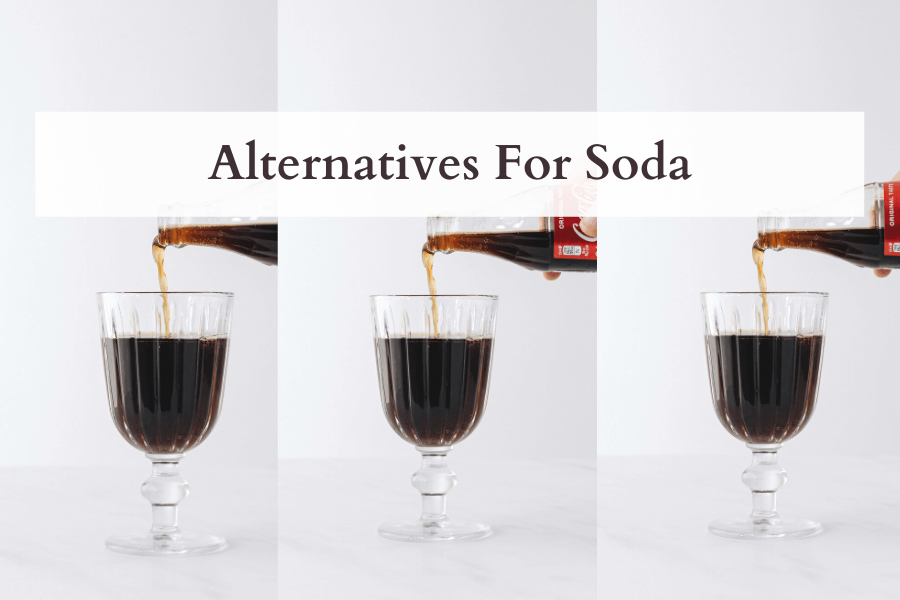
(Note: This article contains affiliate links, meaning In On Around will make a small commission at no additional cost to you. This helps me maintain the site. As always, I value full transparency & only work with brands I love and trust.)
How Can Soda Impact Your Health?
Where do I even begin?! Soda consumption is shown to increase the risk of metabolic syndrome by 36% and type 2 diabetes by 67%. [3] Consumption is linked to weight gain, cardiovascular conditions, liver disease, kidney disease, gout & more. [4]
Drinking one soda per day increases the risk of diabetes by almost 70%. [5]
As of 2020, 1 in 10 adults have been diagnosed with type 2 diabetes and 1 in 3 are diagnosed with prediabetes. [6] These numbers continue to grow! This is completely unsustainable as a nation and it significantly impacts our health care system.
How Can Soda Impact Your Blood Sugar?
Soda is filled with an excessive amount of sugar…. way more than you should ever drink in one day!
When these sugary sodas and drinks are consumed, your blood sugar skyrockets. So how does your body react to soda?
This is your body on sugar: [7]
- Within 20 minutes of drinking a can of soda, blood sugar levels increase and lead to a rush of released insulin.
- After 40 minutes, caffeine is fully absorbed causing blood pressure to rise.
- After 45 minutes, dopamine is produced (aka the “happy” hormone) which gives you that euphoric feeling. Phosphoric acid binds to calcium, magnesium, and zinc, preventing the absorption and utilization of body functions including bone growth.
- And finally, a sugar crash, irritability, and drowsiness.
This cycle makes soda addictive.
When you drink soda, you’re on a blood sugar rollercoaster. The sugar crash makes you crave more and more – it’s an endless cycle of highs and lows.
These blood sugar spikes can impact your mood, immune system, and increase your risk of serious issues, like heart disease.
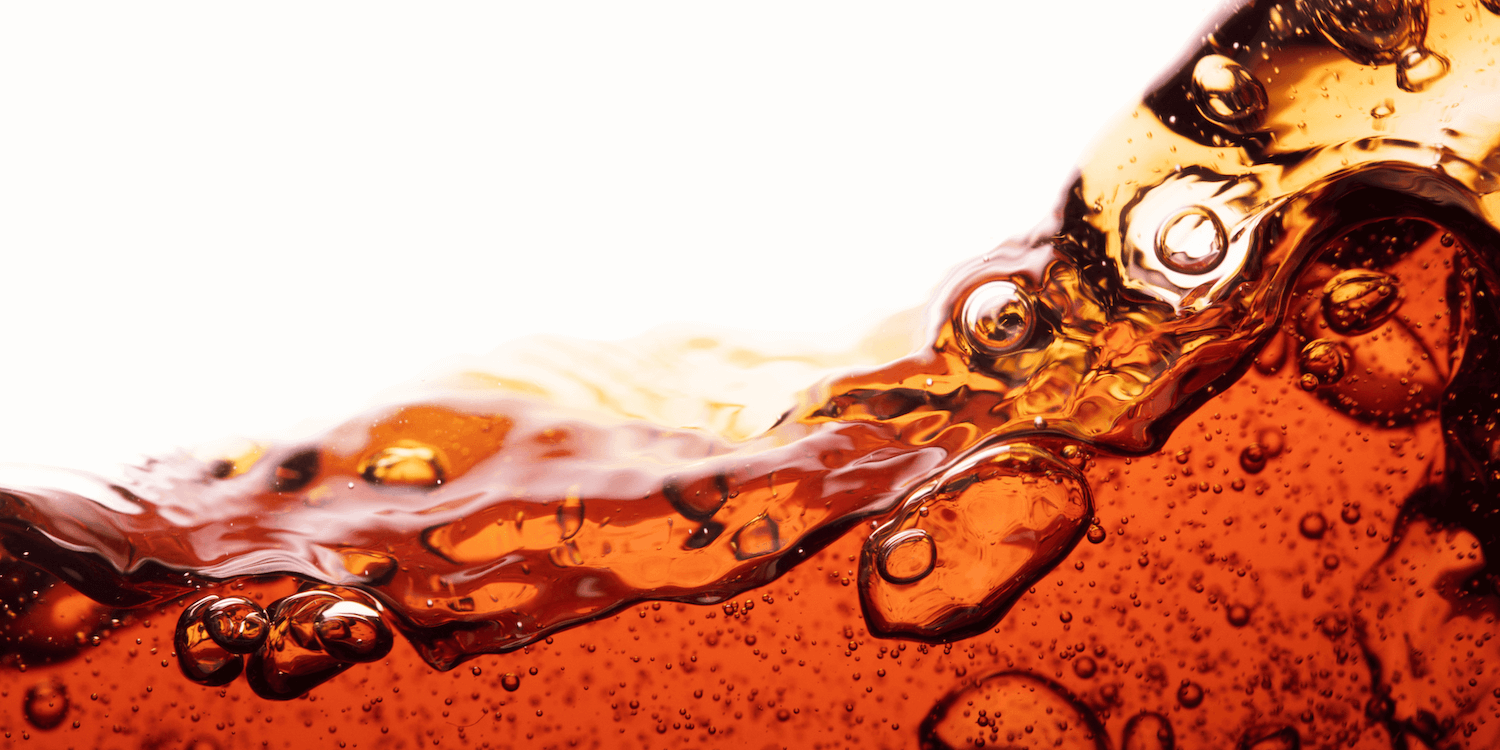
Say What?! How Much Sugar Is In Soda?
The average can of soda contains waaaay too much sugar for one day.
The American Heart Association recommends the following amounts of added sugar per day: [8]
Women – no more than 6 teaspoons (25 grams)
Men – no more than 9 teaspoons (36 grams)
Children 2+ years of age – no more than 6 teaspoons (25 grams)
Child under 2 years of age – no added sugar whatsoever
Now let’s see how much sugar is in just ONE can of the most popular soda brands:
- Coca-Cola: 39g of sugar (the most popular soda in the world) [9]
- Sprite: 38g of sugar
- Pepsi: 41g of sugar
- Mountain Dew: 46g of sugar
- Orange Fanta: 44g of sugar
So just ONE can of soda brings you OVER the recommended sugar intake levels for one day. You’re certainly not doing your health any favors. Count me out!
If you’d like to dive further into the conversation on sugar, check out this article on candy. If you’re looking for a little bit of sweetness, use some crushed-up fruit, organic honey, or organic maple syrup in moderation.
Is Diet Soda Healthier? Is Sugar-Free Soda Healthier?
Diet Soda – let’s talk about it. I mean… “diet” is in the name! It must be healthier… right?!
Many people think, “if soda is so bad for me, let me just switch to diet soda.” But is diet soda really a better option? Nope – not quite.
Just like regular soda, diet soda has a long list of negative health effects. It contains artificial sweeteners, such as saccharin or aspartame, to mimic the sweet taste of regular sugar.
Consumption of diet soda has been linked to health issues such as: [10]
- Increased risk of heart attacks
- High blood pressure
- Dementia
- Fatty liver disease
- Stroke
- Diabetes
- Obesity
… and the list goes on.
Don’t be fooled by the misleading marketing! Diet soda does not support a healthy diet. It’s time to stop drinking these harmful drinks.
Is Sweet Tea Better Than Soda?
Great question and the answer is: it depends! It depends on how sweet the sweet tea is. Very lightly sweet tea will be a healthier option than soda, however, most sweet tea is heavily sweetened. On average, sweet tea contains about 25 grams of sugar in a 16-ounce glass.
While this is less than many soda brands, it is still an exceptional amount of sugar. Drink sweet tea in moderation or switch to unsweetened, organic tea. So if you’ve replaced your soda with sweet tea, it’s a step in the right direction, but not the finish line. Sweet tea is not a healthy drink by any means.
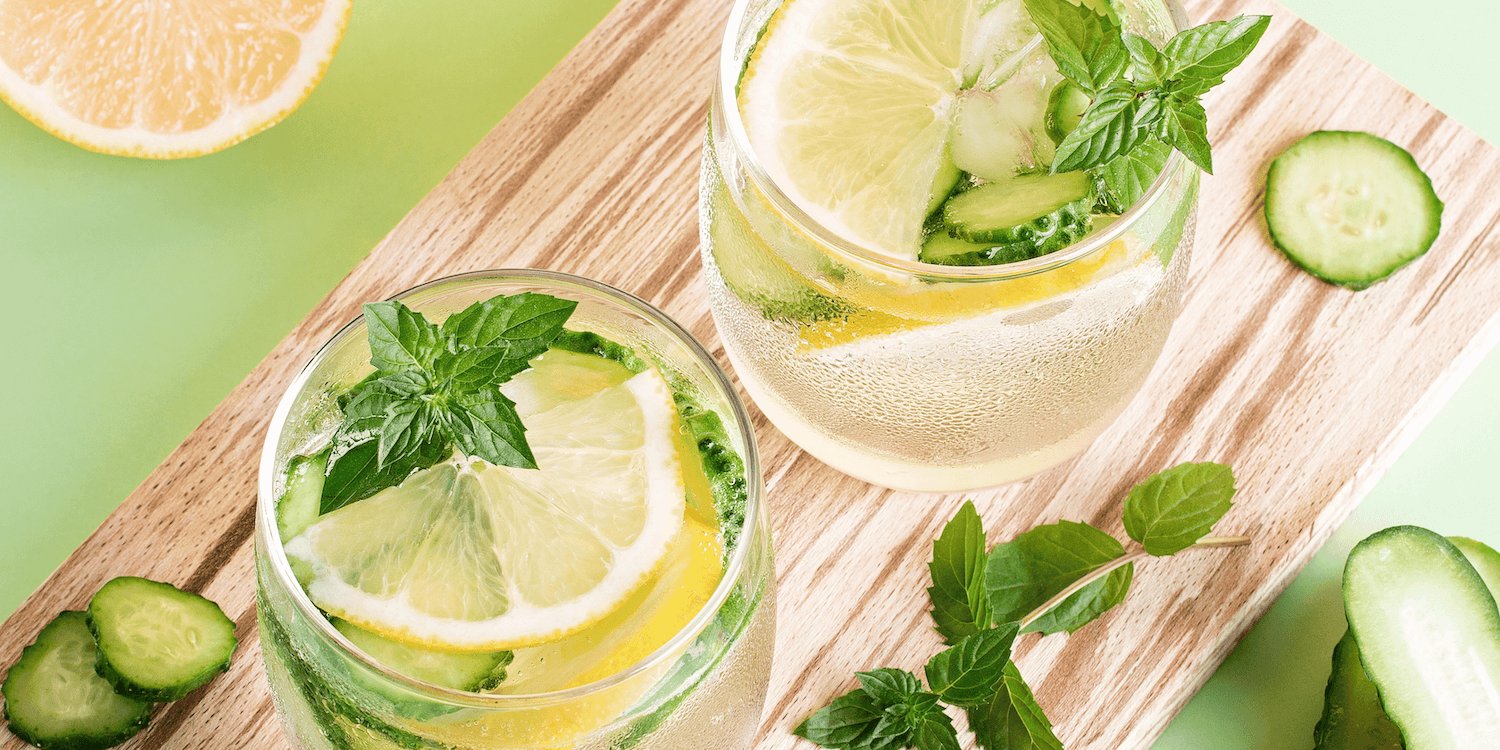
What’s The Deal With Artificial Sweeteners?
Artificial sweeteners are deceiving. You get to taste the sweetness without the extra calories and sugar crash… right!? Not so fast – there’s a catch. Artificial sweeteners are not better for you by any means.
To spot artificial sweeteners on the label, look for: acesulfame potassium, aspartame (also called “amino sweet”), saccharin, neotame, sucralose, and stevia/rebaudioside. There are many trade or brand names for sweeteners as well.
Artificial sweeteners are potentially linked to:
- Increased appetite: Artificial sweeteners have been shown increase hunger, especially an increased craving for sugar. An increase appetite can lead to overeating and other health issues like diabetes. [11]
- Headaches: Certain people may be more sensitive to artificial sweeteners and experience headaches. [12, 13]
- Cancer: Although there is not a definite conclusion on whether artificial sweetener is directly linked to cancer in humans, saccharine has been linked to bladder cancer in rats. [14, 15]
- Anxiety & Depression: Artificial sweeteners, like aspartame, have been shown to decrease the release of important neurotransmitters, like dopamine (aka the “happy hormone”). [16, 17]
- Altered microbiome: Certain artificial sweeteners, like saccharin, sucralose, and stevia, change the microbiome of the gut (and not in a good way!). [18, 19]
- Increased risk of diabetes: While artificial sweeteners may decrease calorie intake, they’re been shown to increase the risk of diabetes. [20, 21]
- Insomnia & Hyperactivity: Artificial sweeteners have been linked to insomnia and sleep disorders by disturbing the natural circadian rhythm. [22, 23, 24]
- Seizures: If you’re epileptic or suffer from seizures, stay far, far away from artificial sweeteners. [25, 26]
While artificial sweeteners aren’t sugar, they come with their own set of health issues. Avoid… avoid… avoid!
Let’s Talk About Natural Flavors
“Natural Flavors” – what’s their deal? It’s “natural,” right?
On ingredient labels, “natural flavors” is an umbrella term, meaning companies do not need to fully disclose the full list of ingredients they’re using. There is a complete lack of transparency! Most of the time, you don’t actually know what you’re eating or drinking.
Natural flavors can be found in SO many products – it’s the fourth most common ingredient on food labels. [27] Try to limit your exposure where you can.
Natural flavors can also contain preservatives/chemical solvents like BHA & propylene glycol. BHA is known to cause cancer, while propylene glycol is an ingredient commonly found in antifreeze… gross.
They’re specifically formulated by food scientists to be addictive and regulations are limited. Your taste buds are being fooled!
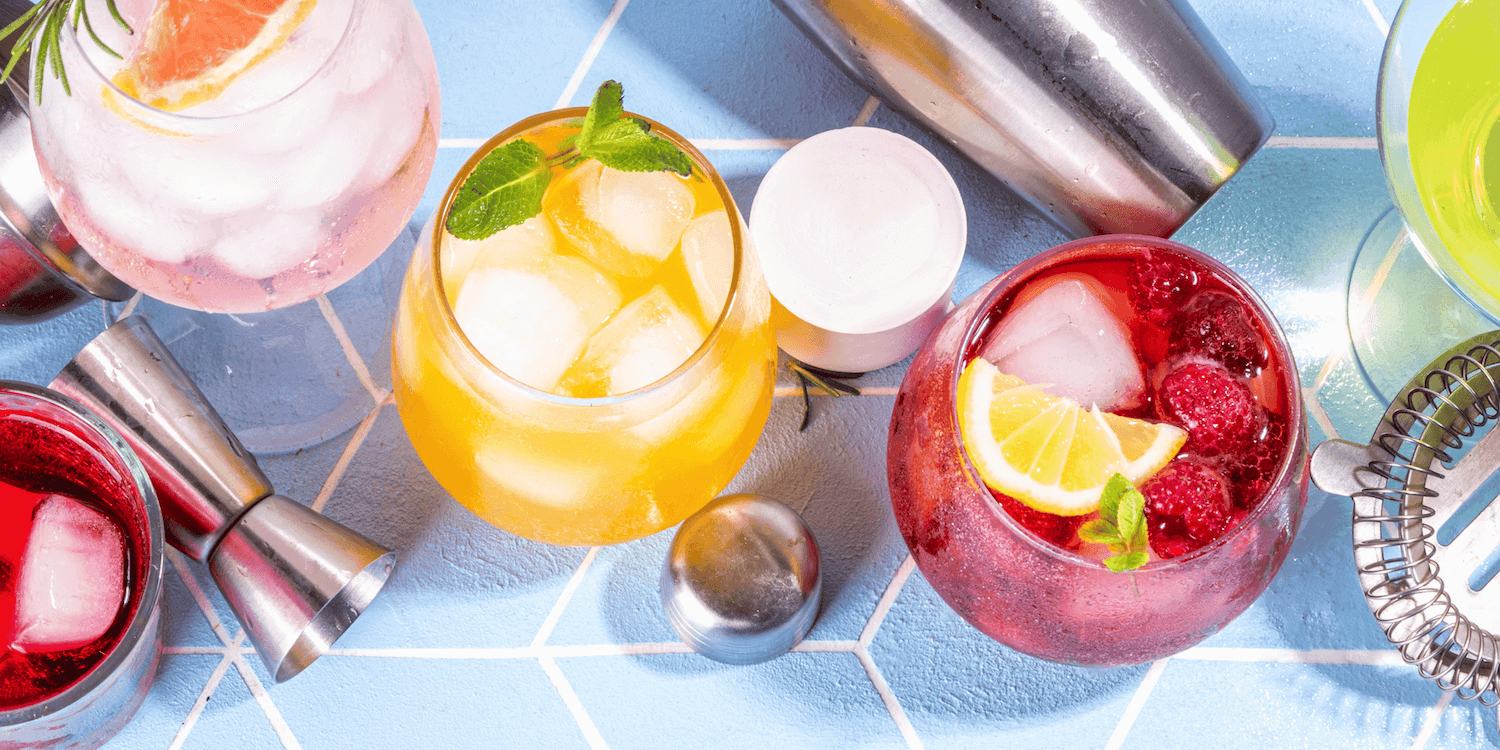
Are You Supporting Soda Companies Without Even Knowing About It?
Unsurprisingly, large soda companies, like Coca-Cola and Pepsi have extremely large budgets. They’re able to buy other brands, even if they’re not producing soda.
For instance, PepsiCo owns companies like:
- Quaker
- Sabra Hummus
- Tostitos
- Aquafina
- Bare Snacks
- Stacey’s Pita Chips
And the list goes on…
Coca-Cola owns popular brands like:
- AHA
- Smartwater
- Vitamin Water
- Honest Tea
… and so much more.
If you are trying to avoid supporting major soda companies, double-check the popular brands you buy. I love supporting smaller, organic, and transparent brands whenever possible!
So How Much Money Do Soda Companies Spend On Marketing?
In 2019, PepsiCo increased its marketing budget by 12% which has helped them increase sales. [28] Soda consumption has slowly been decreasing (for a good reason), but that does not mean soda is anywhere near “dead.”
Large soda companies are increasing marketing expenses to combat the decline in demand. For instance, PepsiCo has spent between 2.3 and 3 billion dollars on advertising (and promotion) on all its products (224 million on Pepsi alone). [29] Yikes.
Top 5 Healthy Drinks Besides Water:
Luckily, there are SO many healthier soda alternatives on the market! These are my favorite soda alternatives:
1) OLIPOP
If you’re trying to wean yourself off soda, this drink can change your life.
OLIPOP is a healthier alternative to soda with only 2-5 grams of sugar in each can and 9g of fiber. It’s made with sparkling tonic and plant-based botanical extracts with prebiotics.
OLIPOP is an alternative to soda but still has flavors to mimic your favorite drink, including Vintage Cola, Classic Root Beer, Orange Squeeze, and so many more delicious options.
The potential health benefits:
- Improved microbiome health
- Digestive health
- Plant fiber
- Prebiotic
- Botanicals
… plus it’s free from all the nasty ingredients, like artificial preservatives, sweeteners, and colors. Time to ditch soda to the curb!
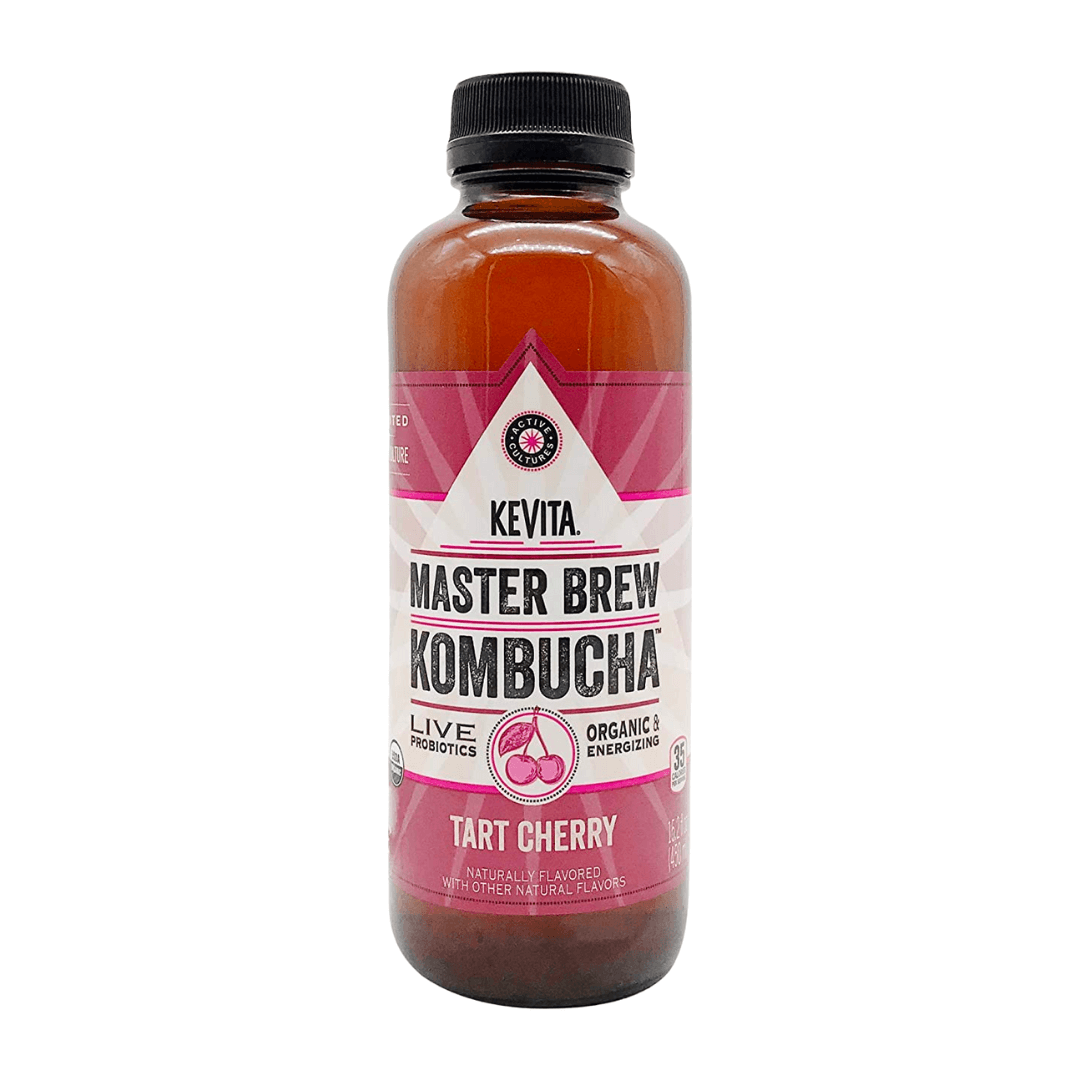
2) Organic Kombucha
Kombucha is a fermented tea, usually black or green tea, made with sugar, bacteria, and yeast. It’s rich in antioxidants, which can help to reduce inflammation in the body! Kombucha is rich with B vitamins and probiotics that can improve your gut health.
In addition, it has antimicrobial properties and has shown to have a positive effect on blood sugar levels after eating. Kombucha may have the power to manage type 2 diabetes, improve liver and kidney function, and protect against cancer. [30]
But beware! While kombucha has grown in popularity, there are many brands on the market that are filled with added sugar. Keep in mind though that sugar is required for the fermentation process, so you will almost never find “zero sugar kombucha.” Look for low-sugar, organic options when possible.
Kevita is a low-sugar brand to look out for (sold at Whole Foods).
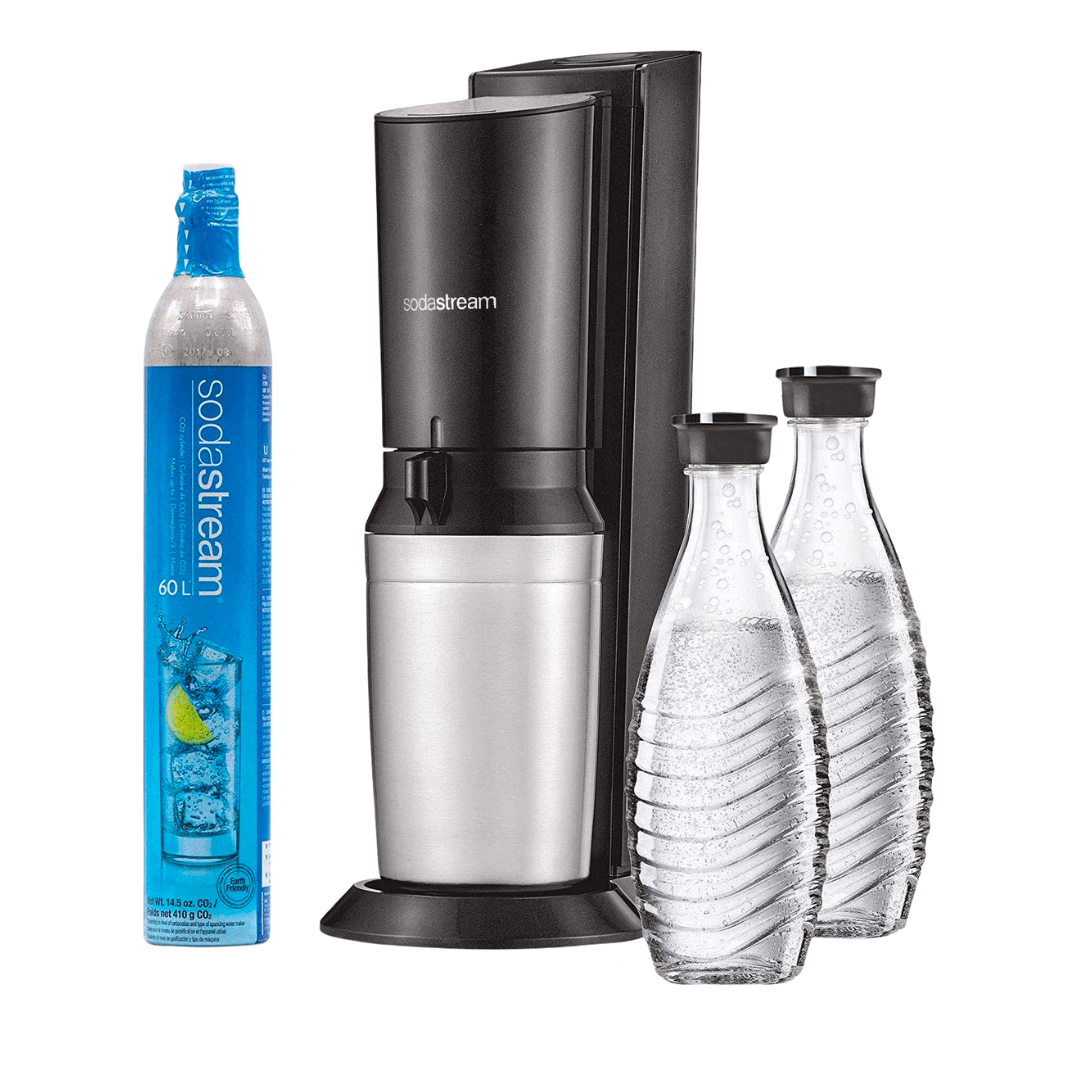
3) Sparkling Water With Lemon or Lime
If you’re a fan of carbonated drinks and carbonated water, a SodaStream is a must! This machine lets you make fizzy drinks right in the comfort of your own home! As always, opt for organic, freshly-squeezed lemon or lime (not the fake artificial flavoring packets). It’s perfect to use with your AquaTru (discount link).
The Aqua Fizz SodaStream version is the best since it comes with glass bottles instead of plastic. This carbonated water is the perfect sugar-free, healthier alternative to soda!
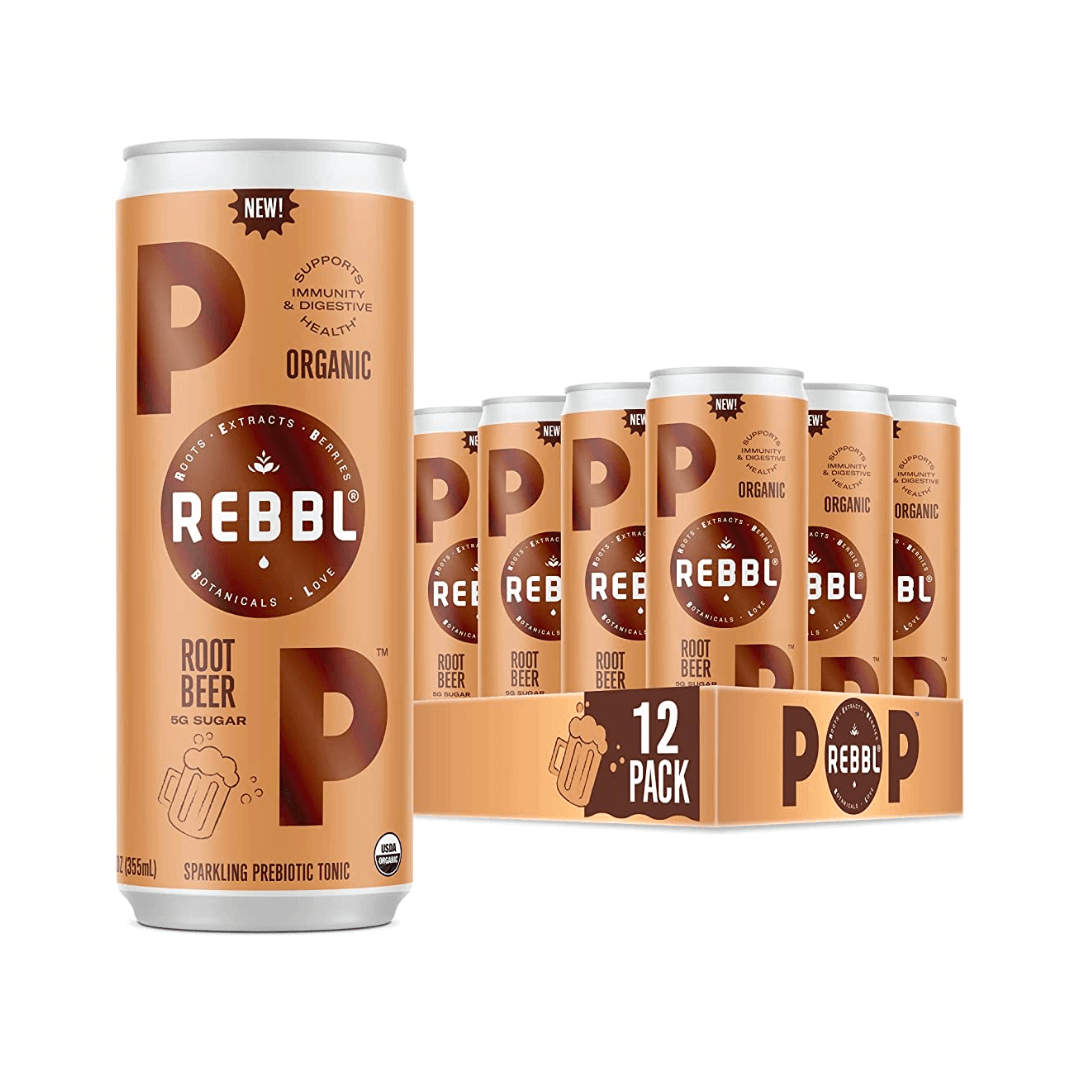
4) Rebbl Pop
Rebbl Pop is another healthier alternative to soda that tastes good and can boost your immune & digestive health. All Rebbl Pop products are vegan, caffeine-free, and contain no more than 5g of sugar.
They have a great variety of flavors, including Root Beer, Ginger Lime, Mandarin Orange, and Blackberry. Each of their drinks falls into a category: balancing, revitalizing, vitality, and energizing. Perfect for any occasion!
5) Green Tea or Matcha
Green tea is an amazing healthier alternative to soda if you are looking for a healthy caffeine boost.
By far, Pique Tea is my favorite brand! Their Green Tea Crystals and Sun Goddess Matcha are some of the best on the market. Pique is screened four times for any heavy metals, pesticides, mold, and radioactive isotopes… plus no added sugar or anything nasty! A whole cup of organic goodness. This is another great sugar-free drink option (as long as you’re not adding sweetened creamer)!
If you’d like to learn about the many health benefits of green tea and why you should drink it every day, check out this article: Green Tea: 15 Reasons Why You Should Be Drinking It Multiple Times A Day.
Frequently Asked Questions – Healthier Soda
Why is soda bad for you?
Is diet soda healthier?
What do "natural flavors" mean?
What are healthier alternatives to soda?
I’m Curious – Do you drink soda?
Let me know your thoughts below! Please rate & review this article below – I’d appreciate it!
xoxo,

Want to read more? Check out my other articles here!
Information on Healthier Alternatives To Soda from: Get Well Be, PepsiCo, Coca-Cola, Statista, FDA, Time, FEMA, My Southern Health
Copyright In On Around LLC 2021 ©. The statements made on this website have not been evaluated by the FDA (U.S. Food & Drug Administration). They are not intended to diagnose, treat, cure, or prevent any disease. The information provided by this website should not be used as individual medical advice. Always consult your doctor for individual recommendations and treatment.

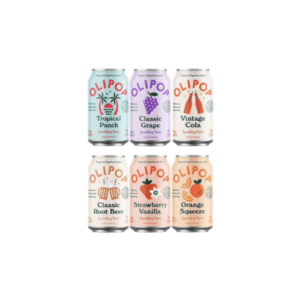
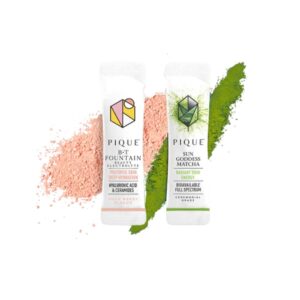
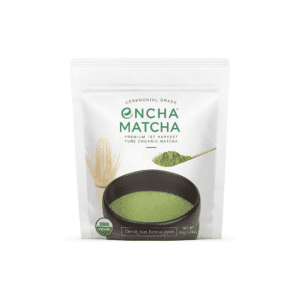
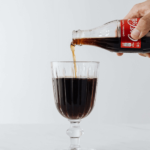
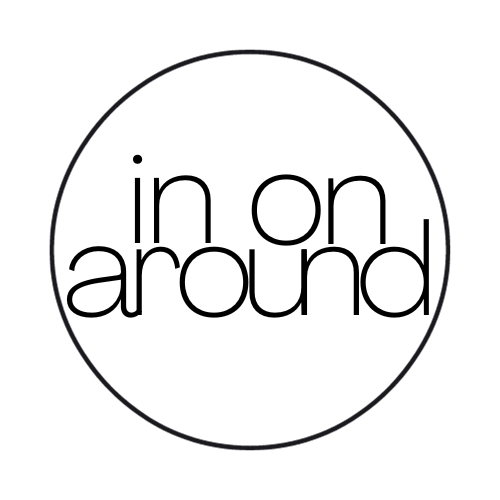

2 Responses
Great article – thanks for the suggested swaps!
I’m so glad you like it! Thanks for the support.